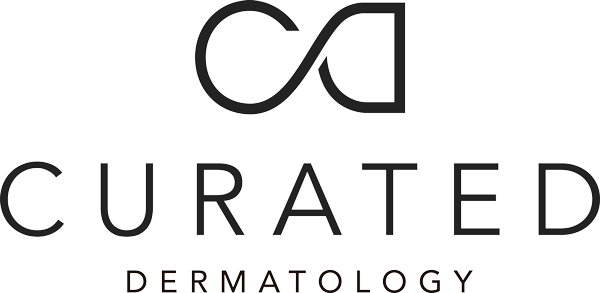Protect yourself with advanced, tailored skin cancer treatment in Bridgewater at Curated Dermatology. Dr. Tanvi Patel offers a full spectrum of surgical and nonsurgical options, including excision, Mohs surgery, cryotherapy, topical therapies, and more, tailored to your diagnosis. We curate your path to healing from within. This is oncological dermatology, curated just for you.
Surgical skin cancer treatments
Surgical intervention remains one of the most effective approaches for treating various forms of skin cancer. At Curated Dermatology, Dr. Patel offers precise surgical treatments to fully remove cancerous tissue while preserving as much healthy skin as possible. Each surgical option is performed under local anesthesia for your comfort.

Excisions
Excisional surgery is a widely used method for treating both melanoma and non-melanoma skin cancers. Under local anesthesia, Dr. Patel surgically removes the tumor along with a margin of healthy surrounding tissue to ensure complete excision. The tissue is sent to a pathology lab, where it is examined under a microscope to confirm that all cancerous cells have been properly removed. If any residual cancer remains, a second procedure may be required. This technique, often performed for skin cancer removal in Bridgewater, typically yields cure rates of approximately 95%.
Curettage and
electrodessication
Curettage and electrodessication is a minimally invasive procedure best suited for small, superficial basal cell or squamous cell carcinomas. After numbing the area, Dr. Patel uses a sharp, spoon-shaped instrument called a curette to scrape away the tumor. She then applies an electrocautery needle to the treated area to destroy any remaining cancer cells and control bleeding. While this method is quick and efficient, it does result in a round, white scar that may be slightly larger than the original lesion.
Mohs micrographic
surgery
Mohs surgery is the most precise technique for removing skin cancer, offering the highest cure rates while preserving the greatest amount of healthy tissue. This is valuable for tumors located in sensitive or high-risk areas such as the face, ears, nose, lips, and eyelids. Dr. Patel removes the tumor one thin layer at a time. Each layer is immediately examined under a microscope to check for remaining cancer cells. This process is repeated until no cancer cells remain, ensuring complete removal while minimizing scarring.
Lymph node
dissection
Lymph node dissection is often recommended when melanoma has spread beyond the tumor site and into the nearby lymph nodes. Dr. Patel removes one or more lymph nodes to determine if the cancer has metastasized. This helps determine the stage of the melanoma and guides further planning. The removed tissue is sent for pathological analysis to assess the presence and extent of cancer cells. While not every melanoma case requires lymph node dissection, it plays a critical role in managing more advanced or high-risk disease.
Non-surgical skin cancer treatments
For certain types of superficial skin cancers or for patients who are not ideal candidates for surgery, non-surgical skin cancer treatments in Bridgewater offer effective, less invasive alternatives. These therapies are particularly useful for low-risk tumors that have not penetrated deeply into the skin. While these treatments can be effective, they may have lower cure rates than surgical methods.

Cryotherapy
Cryotherapy involves freezing cancerous or precancerous skin lesions using liquid nitrogen. This is most effective for small, well-defined, superficial non-melanoma skin cancers or precancerous growths, such as actinic keratoses. Dr. Patel applies liquid nitrogen to the lesion, rapidly freezing and destroying the abnormal cells. In some cases, multiple freeze-thaw cycles may be needed to ensure treatment. While cryotherapy is convenient, it does not provide tissue for pathology, meaning there’s no way to confirm complete cancer removal.
Topical chemotherapy
Topical chemotherapy uses medicated creams or gels to treat skin cancers on the surface of the skin. These treatments are typically reserved for low-risk, non-invasive tumors such as superficial basal cell carcinoma. Dr. Patel may recommend agents like 5-fluorouracil (5-FU) or imiquimod, which are applied daily over several weeks. These work by either destroying cancer cells or stimulating the immune system to target them. However, topical treatment cannot reach deeper cancer cells, making it unsuitable for more advanced cases.
Radiation
Radiation therapy is a non-invasive option for patients who cannot undergo surgery due to medical conditions or when tumors are located in areas that are difficult to treat surgically. This method uses high-energy beams to target and destroy cancer cells over a series of treatment sessions. It can be used as a primary treatment for certain skin cancers or as an adjunct to surgery to ensure any remaining microscopic cancer cells are eradicated. Radiation is particularly useful for older adults or individuals with large or poorly defined tumors.
Oncological dermatology,
curated just for you
Curated Dermatology offers a refined approach to skin cancer care. Led by board-certified dermatologist Dr. Tanvi Patel, our practice combines surgical precision with aesthetic sensitivity to treat skin cancers while preserving your natural appearance. Whether through excision, Mohs surgery, skin cancer surgery, or lymph node evaluation, your treatment is carefully tailored to your specific needs. Schedule your consultation for expert skin cancer surgery in Bridgewater and take the next step toward restoring your skin’s health.


